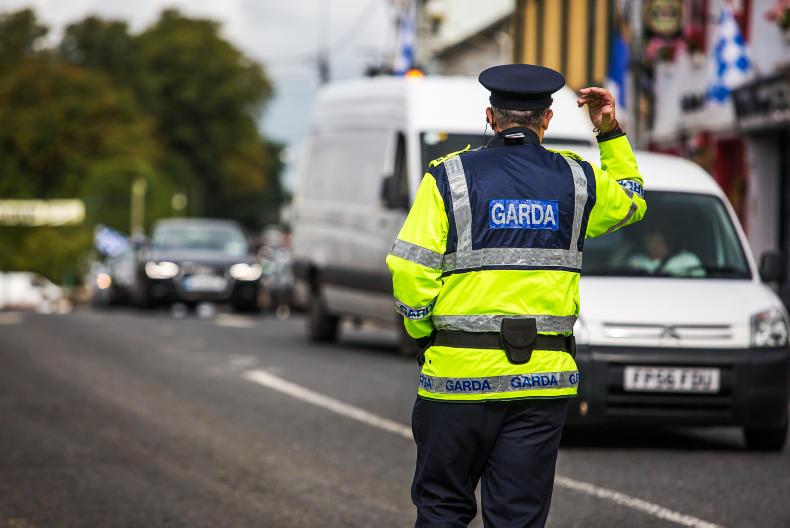Plans to increase the number of gardaí on the front line and deliver a more localised service to communities has been welcomed by the IFA crime and security spokesperson Richard Kennedy.
Kennedy said it was the IFA’s view that the current policing model was not working.
He said the IFA had consistently called for an increased Garda presence in rural areas.
New model
“The new proposed operating model will result in an additional 1,800 gardai working on the frontline, in the community. This is very welcome news, ensuring Gardai will be able to do the work they were trained for, out and about in rural areas, as opposed to sitting in offices filing paperwork,” Kennedy said.
Changes to how the gardaí operate were announced on Thursday and includes restructuring at national, regional and local levels to provide a greater focus on community policing based on local needs.
Garda numbers
From 2017 to 2019, 2,090 gardaí have been recruited and a further 478 have been re-deployed to the front line.
It is expected that from now until end of 2021 a further 1,500 Garda members will be recruited and an additional 1,000 gardaí re-assigned to the front line.
Garda commissioner Drew Harris said: "These improvements will allow us to increase the number of gardaí at the front line and enhance community policing.
“Reduced bureaucracy and ICT initiatives, combined with an increase in Garda members and Garda staff, will increase Garda visibility in communities.
"It will mean gardaí at all ranks will have more time to engage with local communities and stakeholders to help keep people safe.”
Read more
More gardaí on the front line and more community policing
Rural crime hits seven-year high
Plans to increase the number of gardaí on the front line and deliver a more localised service to communities has been welcomed by the IFA crime and security spokesperson Richard Kennedy.
Kennedy said it was the IFA’s view that the current policing model was not working.
He said the IFA had consistently called for an increased Garda presence in rural areas.
New model
“The new proposed operating model will result in an additional 1,800 gardai working on the frontline, in the community. This is very welcome news, ensuring Gardai will be able to do the work they were trained for, out and about in rural areas, as opposed to sitting in offices filing paperwork,” Kennedy said.
Changes to how the gardaí operate were announced on Thursday and includes restructuring at national, regional and local levels to provide a greater focus on community policing based on local needs.
Garda numbers
From 2017 to 2019, 2,090 gardaí have been recruited and a further 478 have been re-deployed to the front line.
It is expected that from now until end of 2021 a further 1,500 Garda members will be recruited and an additional 1,000 gardaí re-assigned to the front line.
Garda commissioner Drew Harris said: "These improvements will allow us to increase the number of gardaí at the front line and enhance community policing.
“Reduced bureaucracy and ICT initiatives, combined with an increase in Garda members and Garda staff, will increase Garda visibility in communities.
"It will mean gardaí at all ranks will have more time to engage with local communities and stakeholders to help keep people safe.”
Read more
More gardaí on the front line and more community policing
Rural crime hits seven-year high






 This is a subscriber-only article
This is a subscriber-only article










SHARING OPTIONS: